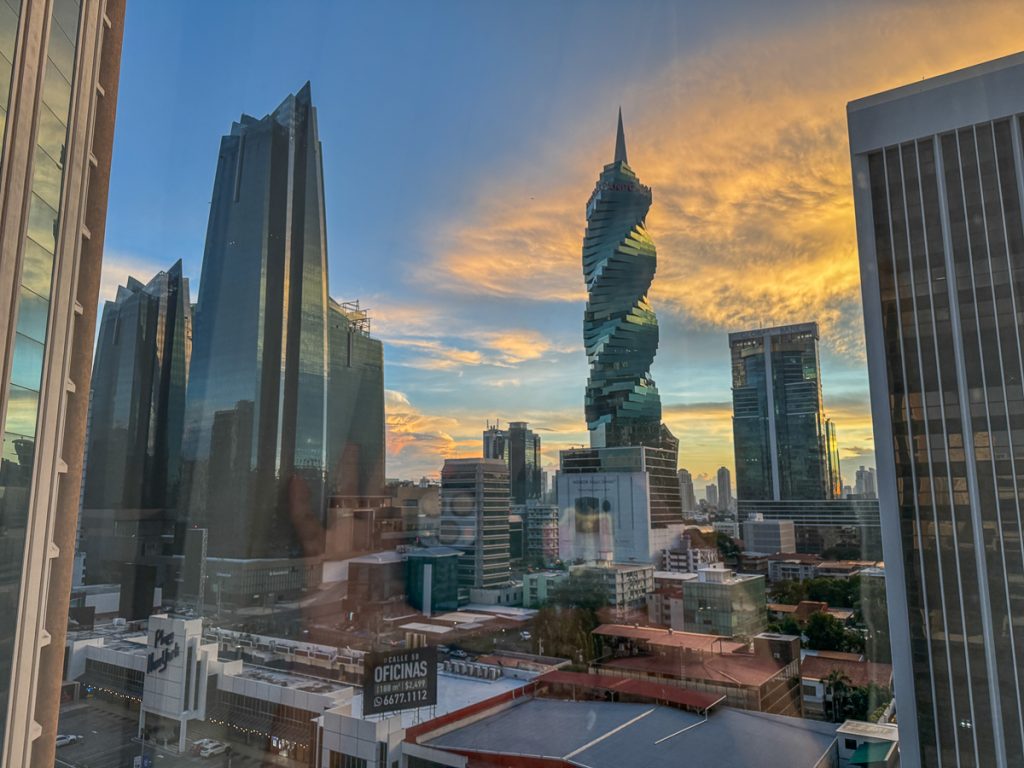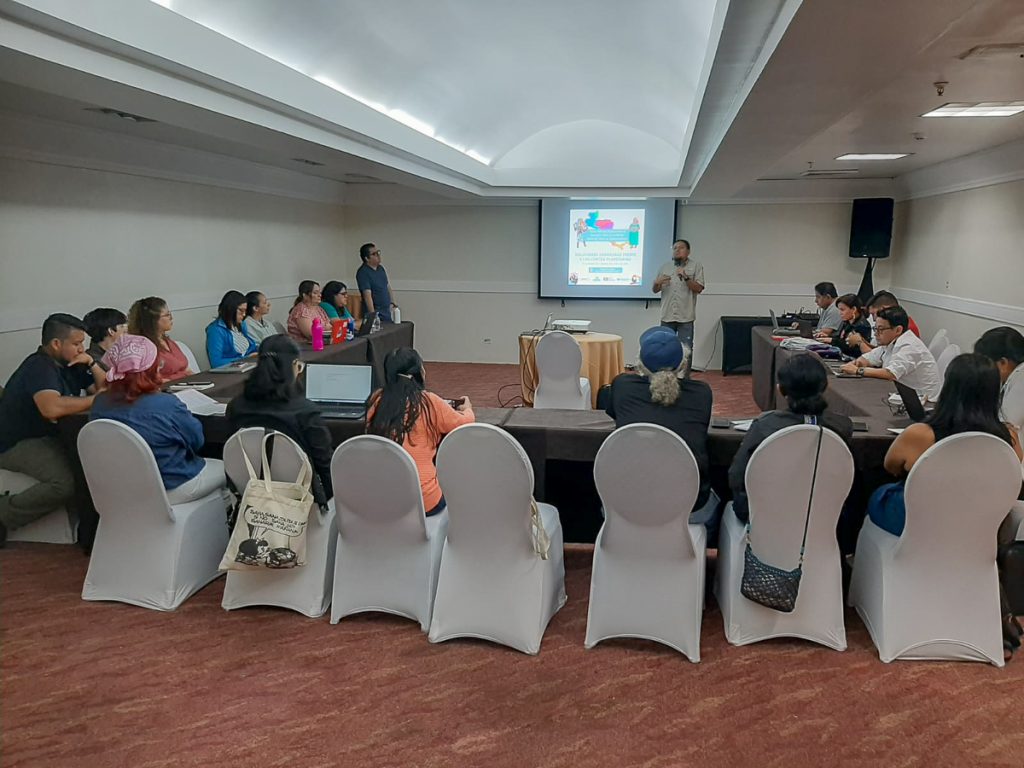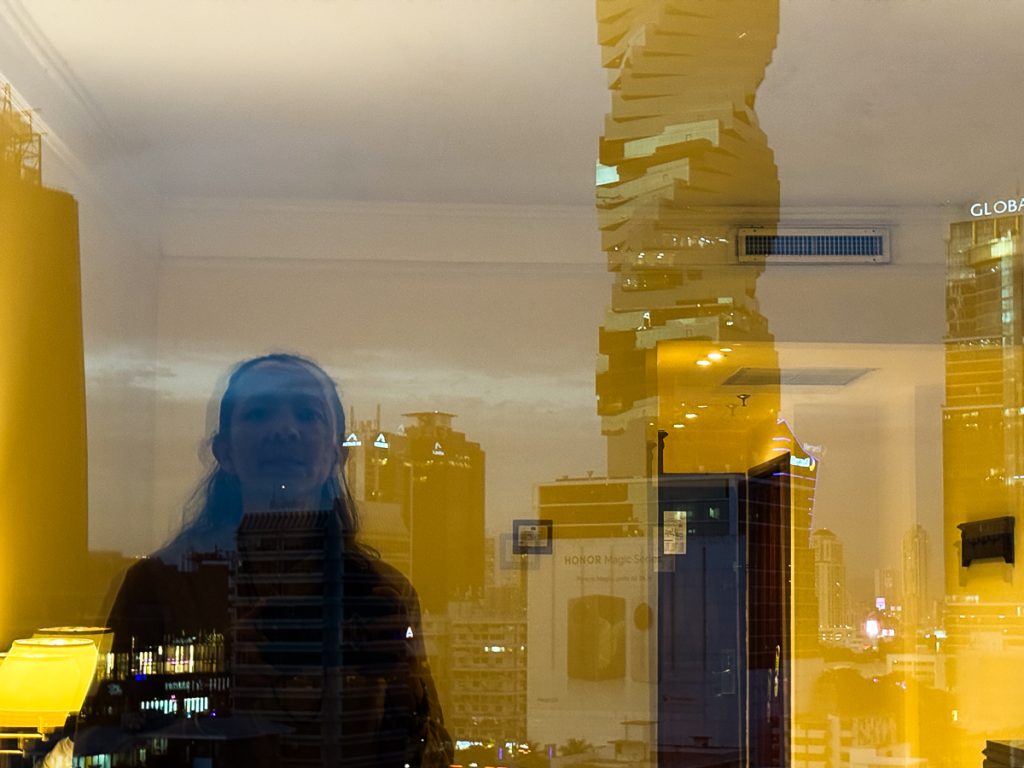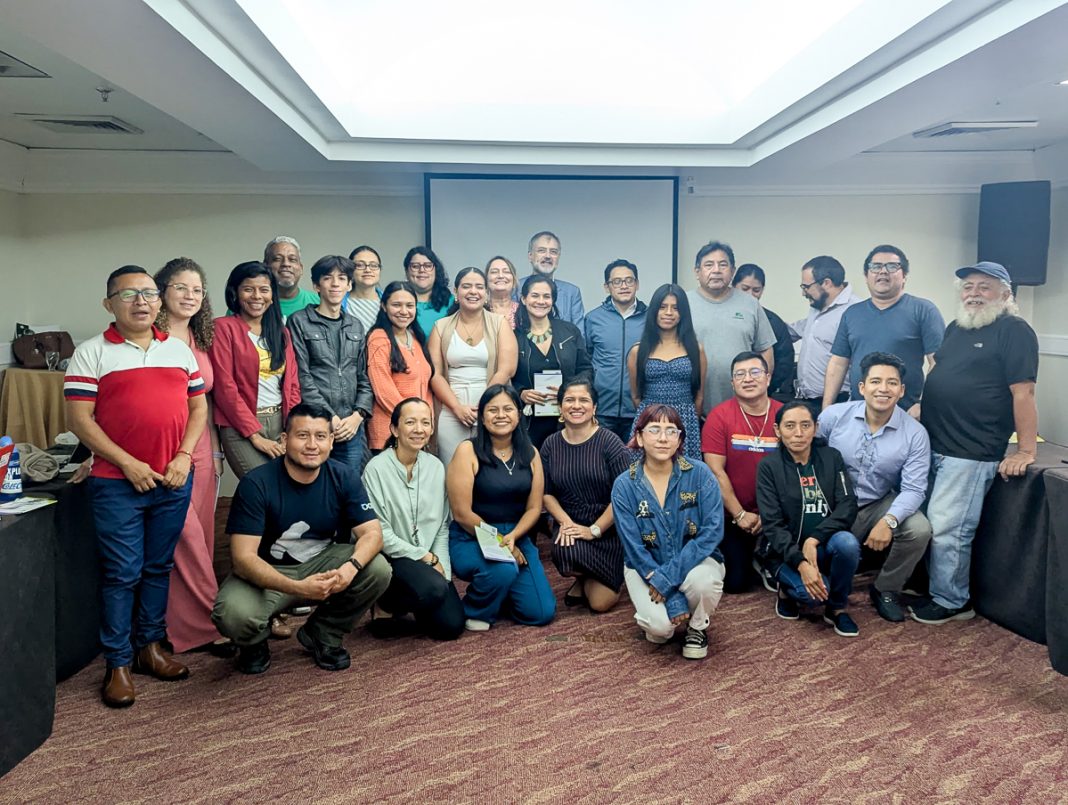In a conference room of a downtown Panama City hotel, next to the famous “El Tornillo” tower, some 20 people discuss the challenges facing their Central American communities. We’ve come from very different places to gather in this enormous city: indigenous communities in Guatemala and northern Panama; coastal communities in El Salvador and the Panamanian Pacific; and smaller cities, like my beloved San José.
Abel, from El Salvador, says there are 14 contaminated marine species that we shouldn’t consume.
José speaks about the introduction of fish species into Lake Atitlán in Guatemala, which has had a direct effect on the decline of the lake’s endemic species. This government policy sought to promote economic growth at the lake, but ended up having the opposite result.
Leonel, also from Guatemala, talks about how climate change is affecting agricultural production. Planting and production cycles have changed significantly and no longer follow the patterns of ancestral knowledge.
Ryan, the first person from Belize to join this working group, says that salt water has mixed with groundwater in coastal communities, affecting the drinking water supply. The highest number of forest fires in recorded history will be recorded there in 2024. There is also a serious problem with land use change, with green areas converted to agriculture and coastal areas converted to development.

Ricardo brings up the topic of groundwater in Panama. Leaching from fertilizer causes mineral contamination, affecting the communities that depend on these water sources.
Kevelin, a young representative of the Ngöbe Buglé community of Panama, says that children see a Panama where there is garbage everywhere; children see what adults do.
Mey, another young leader from Panama, says she supported a family that was polluting the river with fertilizers and herbicides, after filing a complaint that would have cost the family a $5,000 fine. Today, the family promotes organic and agroecological production.
And so the comments continue, all inspired by a presentation on planetary boundaries from by Carlos, from the Salvadoran Generations of Peace Association. That’s the organization that, in alliance with the Salvadoran media organization MalaYerba, has brought me here for this conversation.
Olmedo, from Panama, continues: “From all the topics discussed, we can see that the problems are real in the communities, and that the most vulnerable communities suffer from what companies impose. What changes are we making? How can we leverage this to generate political influence?”
Leonel notes that we cannot continue trying to solve these problems in isolation, because “they are interconnected.. While we entertain ourselves with specific struggles… without connecting them, that complicates things for us.
“The land isn’t productive, and the company says, ‘Don’t worry, we’ll plant monocultures and you’ll come work for us,’” he adds. “If we continue to wage isolated struggles, we need people to understand that it’s not just water or mining that affects a community; it’s a whole range of problems.”
In response, César, also from the Asociación Generaciones de Paz, presents the following topic: endogenous solutions to guarantee a healthy environment.
Local power
What are endogenous solutions? César’s presentation defines them as “those that focus on leveraging the mobilization of internal community resources and local knowledge. These solutions focus on the community and its environment, seeking practical and personalized responses to specific challenges in each location.”
He points out that they differ from government or corporate solutions because they leverage local knowledge and resources; adapt to the specific reality of each community; and promote community participation and leadership. This makes them more lasting and effective solutions, and helps them achieve sustainability.

“I’m not saying we should take responsibility away from our national governments,” says César. “Our role is to monitor, identify, and ensure they fulfill their commitments, but at the same time, work with the people to mobilize their own resources.”
“If we’re going to do something to change the things that threaten life, let’s start with ourselves,” Abel adds.
The inspiration for ‘Healthy Environment’
“Communities’ contributions and actions are not being recognized in climate change work,” says César. “People are the solution, not the problem.”
This is something we understand at El Colectivo 506. That’s why we started this media outlet almost five years ago to highlight community work for human, natural, and planetary well-being.
In this edition, “Healthy Environment,” we continue this mission, but now with a greater conviction that what we have seen in Costa Rica occurs in every corner of Central America.
The conviction comes from spending three days in this Panamanian hotel with members of grassroots organizations from Guatemala, El Salvador, Costa Rica, Panama, and Belize, who form the Regional Coalition for the Right to Live in a Healthy Environment in Central America (COREDAM).
It was three days full of revitalizing conversations that, while never ignoring the problem, reminded us that there is someone out there—and, in this case, inside the room as well—doing something to create a solution.







